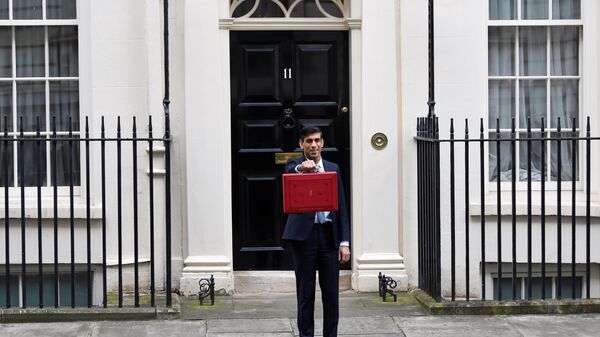The Low Pay Commission, the independent body which advises the government on wages, said on Wednesday that the government's aim to increase the national living wage to £10.50 an hour could be under threat due to the cost of tackling the coronavirus spread.
The chair of the Low Pay Commission, Bryan Sanderson, warned that the Johnson government's target would need to be suspended as the economy is damaged by the outbreak, urging ministers to review its timeframe.
“The ongoing Covid-19 pandemic clearly represents a very challenging set of circumstances for workers and employers alike, and will require us to review whether the emergency brake is required when we next provide our advice to the government” he said.
“This advice will be crucially dependent as always on the economic data we receive".
Boris Johnson was elected in December of last year, saying that he would “end low pay” in the UK, and that the national minimum wage should increase to two-thirds of average earnings by 2024.
The move would see an increase of pay for almost three million workers across Britain.
Workers over the age of 25 on the national living wage will see a raise of 6.2%, from £8.21 to £8.72 in the biggest ever increase to the legal pay floor, as the country prepares to see a spike in unemployment and a coronavirus recession.
The Institute for Fiscal Studies and the Resolution Foundation – two of the UK’s top think-tanks – have told the government to delay the wage rise as it could place pressure on vulnerable businesses.
“The scheduled increase in the National Living Wage to £8.72 an hour will deliver another big pay boost to millions of workers – and represents a landmark moment for a minimum wage policy that the Foundation has long supported", said Nye Cominetti, senior economist at the Resolution Foundation.
“But the scale of the current economic crisis puts the latest rise in a new light. Increasing cost pressures for low-paying firms directly affected by the Government lockdown risks pushing them towards making job losses – something we all want to avoid", she said.
Retailers have also privately lobbied for the hike to be delayed and the British Beer and Pub Association have pleaded with the government to hold back in order to “prevent mass job losses and permanent pub closures".
Support for increases in the living wage are popular among the public. With two out of three workers saying that they would support a £10.50 legal wage floor, according to research by the Learning and Work Institute and the Carnegie UK Trust charities.
How did we get here?
Despite unemployment being at its lowest level since the 1970s prior to the coronavirus crash, average real wages in the UK have largely stagnated and only surpassed pre-2008-2009 crisis levels, accounting for inflation, at the tail end of 2019.
Alfie Stirling, head of economics at the New Economics Foundation think tank, highlighted the policies in response to the 2008 crash which, he said, meant that the UK was unprepared for the coronavirus outbreak, with many households already struggling and dealing with financial insecurity.
“We should want this recovery to strike a better balance between valuing employment rates and employment quality. That means correcting for some of the weak job quality seen prior to the pandemic with higher minimum wages,” he said.
Despite rising unemployment and pressure from business', the Treasury has confirmed that the wage increase will go ahead as scheduled in April.




